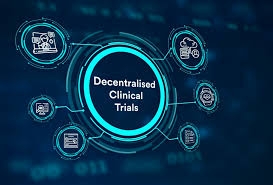Why Are Decentralized Clinical Trials Becoming More Popular?

In recent years, decentralized clinical trials (DCTs) have gained significant traction in the pharmaceutical and healthcare industries. By leveraging digital technology, remote monitoring, and patient-centric approaches, DCTs are transforming how clinical research is conducted. This article explores the reasons behind the growing popularity of decentralized clinical trials and how they are revolutionizing the landscape of medical research.
What Are Decentralized Clinical Trials?
Decentralized clinical trials differ from traditional trials in that they do not rely solely on centralized research facilities. Instead, DCTs utilize digital tools, telemedicine, mobile health apps, wearable devices, and home-based sample collection to conduct studies remotely. This approach minimizes the need for participants to visit physical trial sites, making clinical research more accessible and efficient.
Key Factors Driving the Popularity of DCTs
1. Enhanced Patient Accessibility and Participation
One of the primary advantages of decentralized clinical trials is their ability to increase patient accessibility. Traditional clinical trials often require participants to travel long distances to trial sites, creating logistical and financial barriers. DCTs eliminate these challenges by allowing patients to participate from the comfort of their homes. This inclusivity leads to greater patient diversity, improving the generalizability of trial results.
2. Improved Patient Retention and Engagement
Patient dropout is a significant challenge in clinical research. The convenience of DCTs helps improve patient adherence and retention rates. By incorporating user-friendly digital tools, remote monitoring, and virtual consultations, researchers can maintain continuous engagement with participants, ensuring better compliance with trial protocols.
3. Technological Advancements in Digital Health
The rapid growth of digital health technologies has played a crucial role in the rise of decentralized clinical trials. Wearable devices, electronic health records (EHRs), and mobile health applications allow real-time data collection and remote monitoring, enhancing the accuracy and efficiency of clinical studies. Artificial intelligence (AI) and machine learning further streamline data analysis, leading to more informed decision-making.
4. Cost Efficiency for Sponsors and Researchers
Traditional clinical trials often incur high costs due to site maintenance, staffing, and patient travel expenses. Decentralized trials reduce these costs by minimizing the need for physical infrastructure and site visits. Sponsors and researchers can allocate resources more effectively, making DCTs a cost-efficient alternative.
5. Regulatory Support and Industry Adoption
Regulatory bodies, such as the U.S. Food and Drug Administration (FDA) and the European Medicines Agency (EMA), are increasingly recognizing the benefits of decentralized trials. In response to the COVID-19 pandemic, regulators issued guidance to facilitate remote and hybrid trials. As a result, pharmaceutical companies and research organizations are actively adopting decentralized approaches to ensure continuity in clinical research.
6. Greater Data Collection and Real-World Evidence Generation
DCTs enable continuous data collection from participants in real-world settings, rather than relying on periodic site visits. This enhances the quality of data and allows researchers to capture more comprehensive patient outcomes. The ability to gather real-world evidence contributes to more accurate assessments of drug efficacy and safety.
Challenges and Considerations
While decentralized clinical trials offer numerous benefits, they also present challenges that must be addressed. Data security and privacy concerns, regulatory compliance, and the need for robust digital infrastructure are some key areas that require careful consideration. Additionally, not all patients may be comfortable with or have access to digital tools, necessitating hybrid trial models that combine traditional and decentralized approaches.
Conclusion
Decentralized clinical trials are reshaping the future of clinical research by making trials more accessible, efficient, and cost-effective. With technological advancements, regulatory support, and increasing industry adoption, DCTs are set to become a standard approach in drug development. As the healthcare industry continues to evolve, decentralized trials will play a crucial role in accelerating medical innovation and improving patient outcomes.
- Questions and Answers
- Opinion
- Motivational and Inspiring Story
- Technology
- Live and Let live
- Focus
- Geopolitics
- Military-Arms/Equipment
- Beveiliging
- Economy
- Beasts of Nations
- Machine Tools-The “Mother Industry”
- Art
- Causes
- Crafts
- Dance
- Drinks
- Film/Movie
- Fitness
- Food
- Spellen
- Gardening
- Health
- Home
- Literature
- Music
- Networking
- Other
- Party
- Religion
- Shopping
- Sports
- Theater
- Health and Wellness
- News
- Culture

